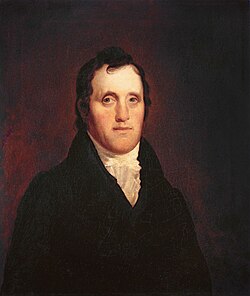Contents
- Incumbents
- Federal government
- Governors
- Lieutenant governors
- Events
- January–March
- April–June
- July–September
- October–December
- Undated
- Ongoing
- Births
- Deaths
- See also
- References
- Further reading
| |||||
| Decades: | |||||
|---|---|---|---|---|---|
| See also: | |||||
| 1817 in the United States |
| 1817 in U.S. states |
|---|
| States |
| Washington, D.C. |
| List of years in the United States by state or territory |

Events from the year 1817 in the United States.



